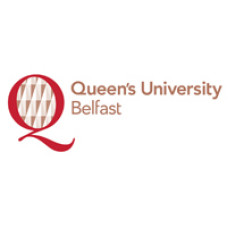MSci Applied Mathematics and Physics

- Tution Fees : 25,300
- Course Duration : 4 Years
- Academic Course Level : Undergraduate
- Location : Belfast
- Scholarship : Upto 3000
Available Options
- General Entry Requirement
- General English Requirement
- Time Line
- Course Specification
- Ask A Question (0)
Academic Requirement:
Queens University Belfast accepts qualifications from around the world for entry into Bachelor’s, and Master’s courses. The entry requirements to study at Queens University Belfast will vary depending on the chosen course and country of origin.
If you do not have UK qualifications see the list of accepted qualifications (including English language qualifications) for each level of course you can see Queens University Belfast's country-specific entry requirements page to find your country for advice on comparability with UK qualifications.
Depending on your chosen programme, professional qualifications or experience may also be taken into account, and in some cases form an integral part of the entrance requirements. For some programmes, an interview, admissions test, or the submission of written work may form part of the selection process. To get a clarification about the entry requirements you can find out more about specific course entry requirements on the university's individual course pages.
English Language Requirements:
Queen's University Belfast requires international applicants to demonstrate a high level of English language proficiency to ensure academic success and full participation in university life. All applicants whose first language is not English must meet the university's English language requirements by providing evidence through recognized tests such as IELTS, TOEFL, and other accepted assessments. These requirements are essential for ensuring that students possess the necessary language skills to actively engage in lectures, seminars, written assignments, and other academic activities. Meeting these standards confirms the applicant's preparedness to succeed in an English-speaking academic environment at Queen's University Belfast. The university accepts the following English language tests:
- 1) IELTS Academic (UKVI Approved): 6.5 with a minimum of 5.5 in each
- 2) IELTS Academic or IELTS Indicator: 6.5 with a minimum of 5.5 in each
- 3) TOEFL iBT : 90 Overall (L- 17 R- 18 S- 20 W- 17)
- 4) Pearson Test of English (PTE) Academic: 69 overall with a minimum of 59 in each skill
Please Note: Please look at individual English language qualification requirements and also note that some degree programmes may require higher scores in the individual sub-skill components of IELTS and TOEFL tests. Please check the Course finder for specific programme requirements.
| Conditional Offer | Unconditional Offer | CAS |
|---|---|---|
| 4 Weeks | 10 Days | 3 Days |
| Entry requirements | |
General Requirements Class 12th - 85% (AAA including Mathematics and Physics OR A* (Mathematics) AB including Physics) English Language Requirements IELTS: 6.0 or 70% in
English Language in Standard XII CBSE/ISC/awarded by the following State Boards: Gujarat, Karnataka, Maharashtra,
Tamil Nadu and West Bengal. |
|
| Course Modules | |
Stage 1 In the first year of study, most Mathematics students choose to take the six courses on offer within Mathematics Students on joint pathways (Physics/Computer Science/Finance) will combine a specific selection of these modules with courses taken from the respective department The courses at Stage 1 lay the foundation for the future study of mathematics, and, through the Mathematical Modelling and Reasoning courses, and the SOR methods course, will also provide insight into how mathematical methods and mathematical thinking relate to real problems. Courses are outlined below: Analysis and Calculus Numbers, Vectors and Matrices Foundation Physics Scientific Skills Stage 2 Stage 2 completes the mathematical foundations with three core courses for most mathematics students Students can take three optional courses to start the personalisation of their mathematics study Students on joint pathways will take at least two courses outside Mathematics, and the Analysis course does not form part of the core Courses are outlined below: Classical Mechanics Optics, Electricity and Magnetism Numerical Analysis Fluid Mechanics Physics of the Solid State Atoms, Nuclei and Radiation Analysis Linear Algebra Stage 3 At this level, the BSc and MSci, pathways separate. BSc students take a project module and at least one other module that assists with the development of skills relevant to their chosen programme. For mathematics students, this module is Computer Algebra. MSci, students take on an investigations module, which develops the research skills needed for the extended Level 4 investigation. In addition, students have the opportunity to develop their understanding of a wide range of mathematical topics, ranging from data mining and financial mathematics to quantum mechanics and algebraic equations Student on the joint programmes with Physics and Computer Science will take a selection of modules from both Mathematics and the joint programme. Mathematics with Finance students will take a selection of modules of relevance to finance Courses are outlined below: Quantum Theory Quantum mechanics and relativity Investigations Partial Differential Equations Electromagnetic Theory Tensor Field Theory Financial Mathematics Calculus of Variations and Hamiltonian Mechanics Mathematical modelling in biology and medicine Solid State Physics Physics in Medicine Nuclear and Fundamental Particle Physics Electromagnetic Radiation and Modern Optics Astrophysics Stage 4 The Stage 4 courses open to MSci. students offer students the opportunity to study a selection of topics in greater depth than is possible in the BSc programme. The centrepiece of the fourth-year is the double-weighted investigations course, in which a student has the opportunity to study an aspect of mathematics close to the frontier of knowledge. The main choice of modules includes: Advanced Quantum Theory Practical methods for partial differential equations Advanced Mathematical Methods Statistical Mechanics Information theory Mathematical methods for quantum information processing Project Lasers and Plasma Physics |